Switzerland imposes early closing time for bars and restaurants
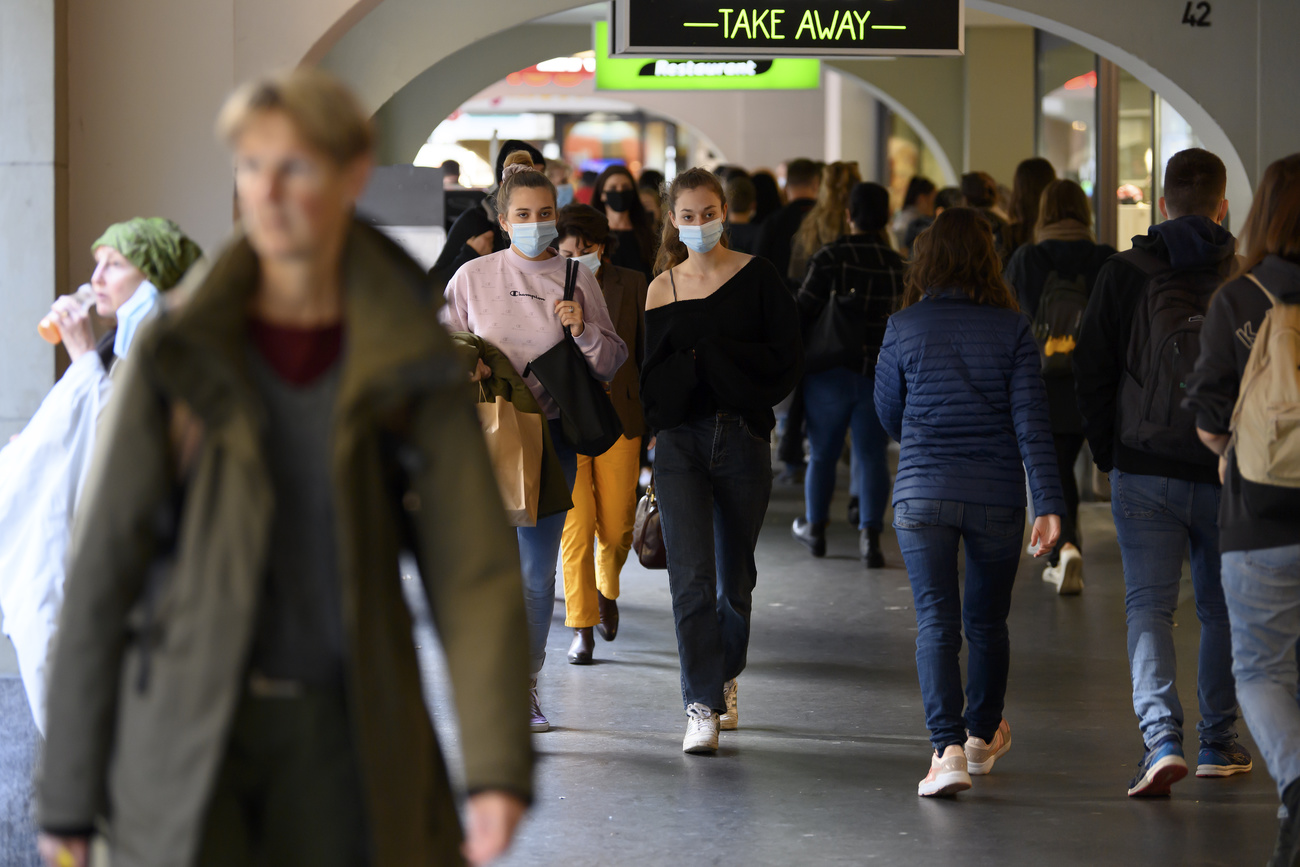
The government is also extending a mask-wearing obligation as part of new wide-ranging measures to fight Covid-19 by significantly reducing person-to-person contacts.
Nightclubs will need to close their doors, while restaurants and bars must remain shut between 11 p.m. and 6 a.m. With the exception of families and members of the same household, customers will be seated at tables of four people maximum.
“We all want Switzerland to be able to manage and overcome this crisis as a united country,” Swiss president Simonetta Sommaruga said at a press conference to announce the new restrictions. “No one wants to see another lockdown.”
Masks, which since October 19 have been mandatory in all indoor public spaces, must also now be worn in outdoor areas of shops, theatres, cinemas, restaurants and bars, and at open-air markets. Masks are also compulsory in high-traffic pedestrian zones where physical distancing is not possible, in schools from the secondary II level, and in workplaces.
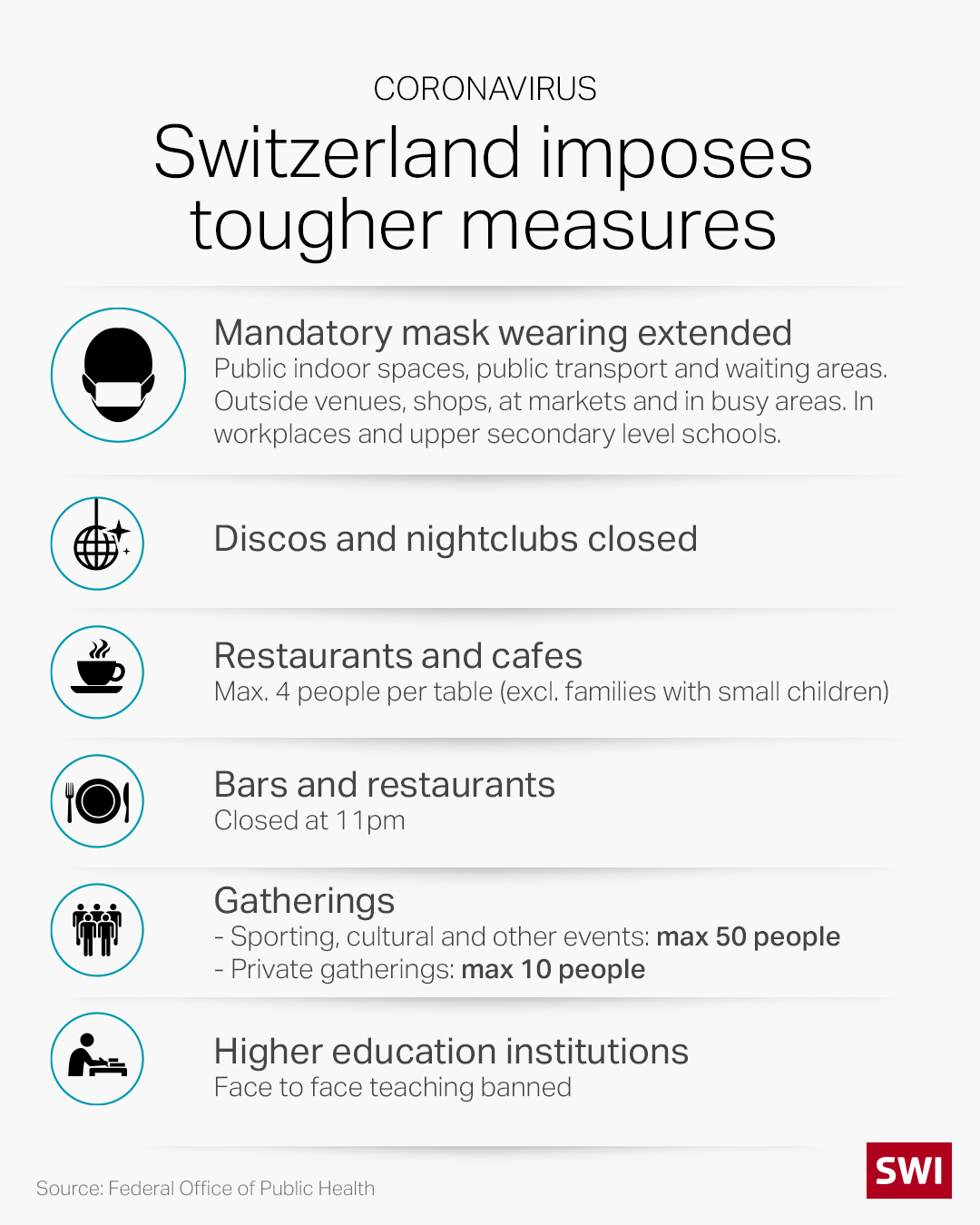
Public events of more than 50 people are now banned, including cultural and religious gatherings and sports matches. Exceptions include organised political gatherings, including events to gather signatures for a referendum. A ban on spontaneous public gatherings of more than 15 people, in effect since October 19, remains unchanged.
Amateur cultural and sporting events of 15 people or less are allowed, provided social distancing can be guaranteed and masks are worn.
Private events among family and friends are now limited to 10 people.
The measures announced on Wednesday all come into effect on October 29 and will last until further notice. Measures already imposed by the cantons continue to be applicable, health minister Alain Berset pointed out. Cantons can also impose stricter measures as necessary.
Under the Swiss federal political system, the 26 cantonal authorities have wide-ranging autonomy, notably on health matters, and since summer have been implementing measures to combat the pandemic based on the local situation.
Rapid testing gets the green light
Rapid antigen tests will be deployed on November 2, Berset also announced, with the objective of significantly increasing the country’s testing capacity. He said the tests, which are less sensitive than the standard Covid-19 tests currently in use, would allow Switzerland to undertake 50,000 more tests per day.
The rapid tests are currently undergoing an evaluation at the National Reference Centre for Emerging Viral Infections in Geneva and will be used on those who present symptoms but do not belong to a vulnerable group.
Travel restrictions adjusted
Starting Thursday, the government will classify just four countries – Belgium, Czech Republic, Andorra and Armenia – as high-risk. Travellers arriving from these countries will need to spend ten days in quarantine. Previously Switzerland had placed over 60 countries on its risk list, once they had reached over 60 new Covid cases per 100,000 inhabitants over a 14-day period.
Berset had indicated last week it made no sense for the country to adhere to such a rule when Switzerland’s own infection rate had far exceeded that bar.
The government will also abolish the current rule that limits travel for business purposes or for medical reasons to five days.
Support for workers
In line with a measure approved by parliament earlier this autumn, the Federal Council announced that on-call workers with a permanent contract can now apply for benefits if their hours are reduced, retroactive to September 1.
But economic affairs minister Guy Parmelin said no additional support measures were anticipated – the law on Covid-19, passed by parliament last month, sufficiently covers financial assistance for various sectors, businesses and their staff, he told reporters.
The government on Wednesday said it anticipated a budget deficit of CHF20 billion ($22 billion) for 2020, with some CHF18 billion earmarked to fight the health crisis. The budget for the year had originally forecast a surplus of CHF300 million.
The measures announced on Wednesday is the second set of restrictions taken at the federal level to fight the so-called “second wave” of the coronavirus, which Berset previously told reporters had come “earlier and stronger than expected.” During the first wave last spring, the government imposed a nationwide three-month lockdown, bringing public life to a standstill and resulting in a significant decrease in cases by the summer.
Overnight Switzerland registered over 8,600 new cases and 24 deaths linked to Covid-19.
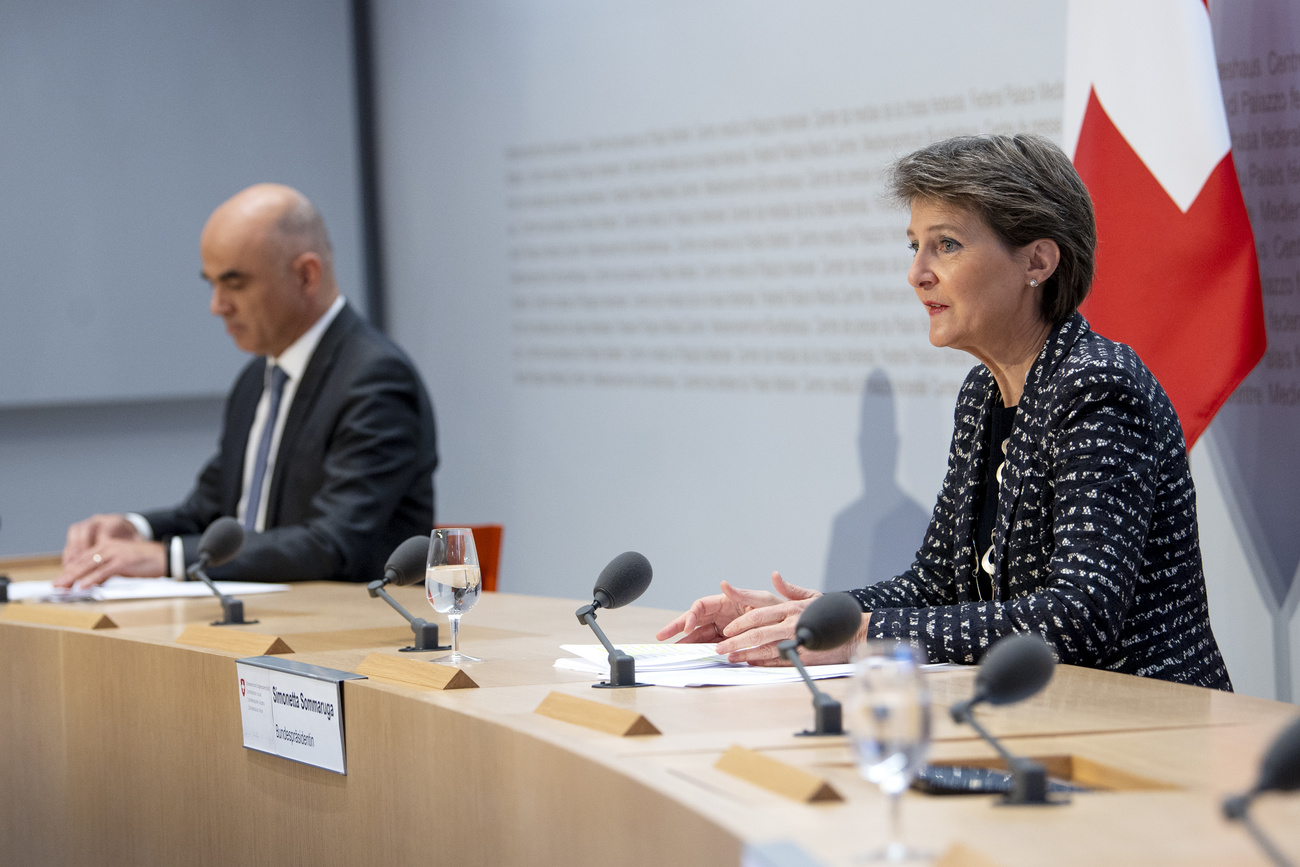
More
Switzerland imposes mask-wearing in indoor public spaces

In compliance with the JTI standards
More: SWI swissinfo.ch certified by the Journalism Trust Initiative









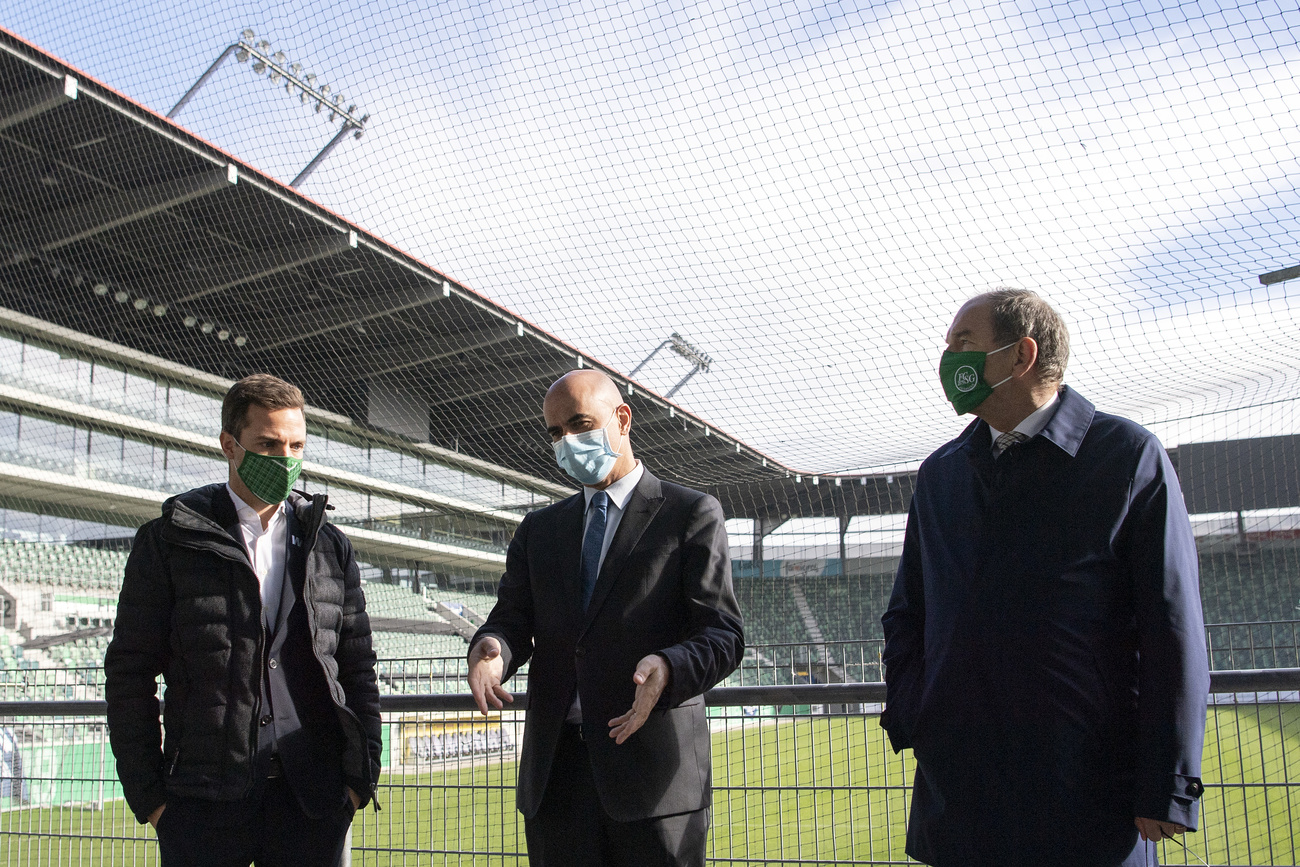
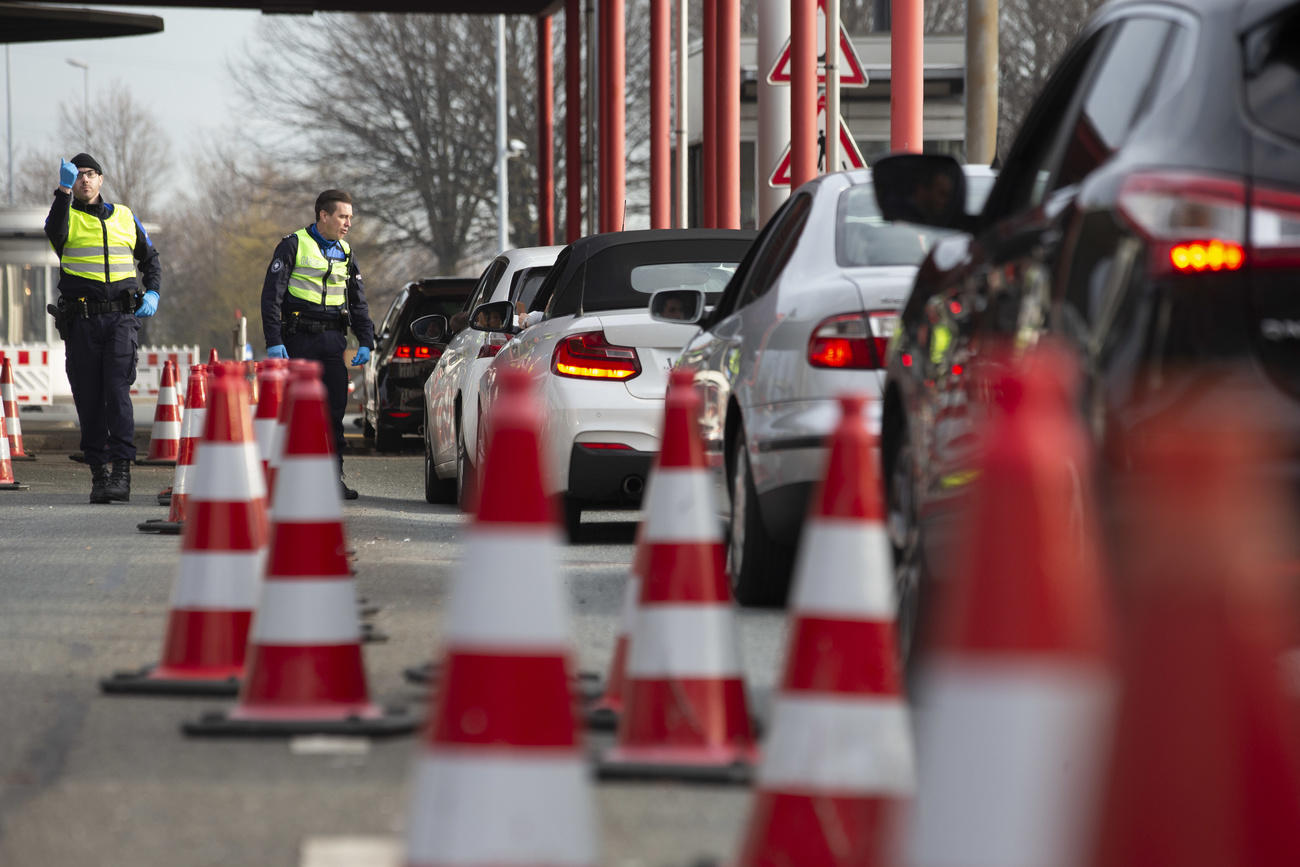


You can find an overview of ongoing debates with our journalists here . Please join us!
If you want to start a conversation about a topic raised in this article or want to report factual errors, email us at english@swissinfo.ch.